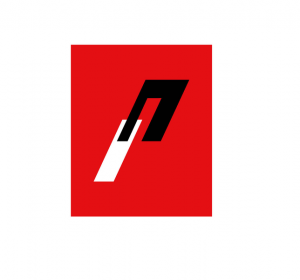When it comes to tool safety, no sector can afford to be complacent. However, in high-risk industries like aerospace or offshore oil and gas, the consequences of unsafe practices are especially severe.
Even the smallest oversight can lead to injuries, lost productivity, or even fatalities. That’s why, at Principal Power Tools, we believe tool safety should never be an afterthought: it should be built into every decision, from investing in tools to their actual use.

With over 25 years of experience supporting critical sectors across the UK, we’ve gained a deep understanding of what tool safety really means.
In this blog, we bring together the key lessons from the industries we serve, so businesses can learn from the challenges others have faced, and the solutions that work.
1. The Aerospace Sector
In the aerospace industry, there’s no margin for error. Every component must meet exact tolerances, and every tool must be reliable, calibrated and safe to operate. But safety goes beyond just the technical specs of the equipment.
Key risks include those from repetitive tasks in confined spaces, which often lead to cumulative strain injuries or Hand-Arm Vibration Syndrome (HAVS), particularly during deburring, sanding or grinding operations.
We work closely with aerospace manufacturers to introduce low-vibration tools, alongside routine vibration testing and job rotation strategies. This not only reduces the physical strain on operators but ensures long-term compliance with safety standards.
2. Rail: Working with Power on the Move
Rail maintenance and construction teams deal with an ever-evolving environment: outdoor conditions, mobile work zones, and strict time constraints. Speed is critical, but safety can’t be sacrificed for the sake of productivity.
Workers are exposed to noise, vibration, and hazards from percussive tools like rail grinders and tampers.
We’ve supported contractors with ergonomically designed pneumatic tools that offer excellent power-to-weight ratios. These can help reduce fatigue and increase control.
3. Foundries and Metal Fabrication: Heat, Dust and Heavy Impact
In foundries, where molten metal, heavy castings and airborne contaminants are the norm, tool safety is partly about resistance to extreme environments.
Key risks include flying debris, burns and hand injuries from high-speed or poorly maintained cutting, chipping and grinding tools.
To improve safety, tools used in foundries must be built to be tough, but also easy to control. We recommend specific tools from ranges such as Fuji and Trelawny, which are purpose-built for harsh conditions.
We also work with clients to ensure routine maintenance schedules are followed, including inspection of worn parts and replacement of spares, which can be supplied directly from our extensive UK stock.
4. Vehicle Manufacturing
In vehicle manufacturing, workers are at risk of repetitive strain injuries and vibration-related disorders.
We’ve helped vehicle plants adopt modular tool management systems and hand-arm vibration tracking, enabling managers to monitor exposure across teams and make data-driven decisions.
We also supply tools from CP Industrial and ATA, which are known for their safety-focused engineering and operator-friendly design.

5. Offshore Oil and Gas: No Room for Error
In offshore environments, every operation takes place in a high-risk environment. Wet surfaces, corrosive salt air, remote locations and strict safety regulations all play a part. The tools used must be reliable, spark-resistant where necessary, and suited to high pressure when used on a continuous basis.
Key risks include ignition hazards, failure of tools in hazardous atmospheres, and delayed rescues in case of incidents.
For our offshore clients, we can supply non-sparking pneumatic tools,, and we can suggest alternatives that reduce a reliance of tools altogether in some high-risk scenarios.
When vibration or fatigue is a concern, we perform on-site testing and recommend tool substitutions or altered workflows to minimise exposure.
Common Lessons Across All Sectors
While each industry has its own challenges, some safety principles are universal:
- Training matters. Even the safest tools become dangerous if workers don’t have proper instructions. We always advocate for consistent, hands-on training for operators.
- Maintenance is non-negotiable. A well-maintained tool is much more likely to be safe. We supply spare parts for a wide range of brands and offer first-class repairs and maintenance.
- Vibration exposure adds up. HAVS is an insidious danger that can destroy careers. Our in-house testing services and vibration reports can give you the data your company needs to protect workers and remain compliant.
- Tool selection isn’t just technical: it’s strategic. We don’t just sell tools. We help clients choose the right equipment for their needs, often proposing alternative approaches that eliminate risks before they arise.
The Principal Difference: Knowledge-Backed Safety
At Principal Power Tools, tool safety is our number one priority. Our ISO registration reflects our commitment to quality and accountability.
More importantly, our years of experience across industries means we can speak your language, whether you’re an offshore supervisor, an aerospace engineer, or a rail safety officer.
Every tool we recommend, every test we run, and every piece of advice we offer is aimed at making your workplace safer, smarter, and more cost-effective.
Want to improve tool safety in your operation?
Give us a call on 01709 528600 or get in touch online to speak to a specialist.

